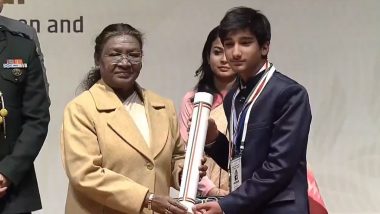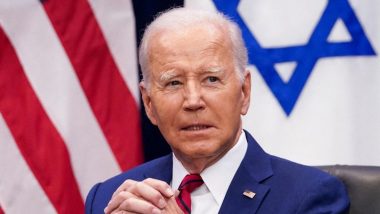Taipei, Oct 10 (AFP) Taiwan's President Tsai Ing-wen on Wednesday accused China of "seriously challenging" peace and stability, describing the island she leads as being on the frontline of tensions in the Pacific.
Her comments come as Beijing pursues a multi-pronged attack on any claims to sovereignty by self-ruled democratic Taiwan, which it sees as part of its territory to be reunified, by force if necessary.
Relations between Beijing and Taipei have deteriorated since Tsai took office two years ago, as she refuses to acknowledge that Taiwan is part of "one China".
"As Taiwan is on the frontline of the Western Pacific, we are naturally subject to tremendous pressure," Tsai said in a televised speech to mark Taiwan's National Day.
"China's unilateral diplomatic offensive and military coercion have not only harmed cross-strait relations. They have also seriously challenged the status quo of peace and stability in the Taiwan Strait," she added.
Taiwan considers itself a sovereign country and has an independent political system, judiciary and currency, but has never formally declared a split, despite being ruled separately since 1949.
Beijing's Taiwan Affairs Office hit back, claiming Tsai's remarks "would only further worsen cross-strait relations and lead Taiwan to a more dangerous situation" in comments carried by the official Xinhua news agency.
China has recently upped military drills around the island and has made a concerted effort to poach Taiwan's dwindling number of official allies -- only 17 countries still diplomatically recognise the island after five jumped ship since Tsai took power.
Beijing has also successfully put pressure on international businesses to list Taiwan as part of China on their websites and ensured Taiwan is shut out of global forums.
Tsai called on authorities in Beijing to "play a positive role in the region and the world, instead of being a source of conflict".
She pledged not to escalate tensions but also said Taiwan would seek to fortify its national security and diplomatic links, establishing its "irreplaceable strategic importance".
"I will not be provoked into confrontation or conflicts that endanger cross-strait relations, nor will I deviate from the will of the people, and sacrifice Taiwan's sovereignty," Tsai said.
"An effective response strategy must be rooted in national strength," she added. Worsening ties with Beijing and unpopular domestic reforms policies are putting Tsai's government under pressure ahead of major local elections next month.
Tsai warned in her speech that anyone interfering in the election process would "suffer serious consequences".
She has accused Beijing of spreading "fake information" to affect public trust in the government in the run-up to the vote.
Later Wednesday, thousands of supporters of Taiwan's Beijing-friendly opposition Kuomintang (KMT) party gathered in downtown Taipei, waving flags and singing Taiwan's anthem.
Under the former KMT government of President Ma Ying-jeou, from 2008 to 2016, there was an unprecedented rapprochement with Beijing. Ma attended the rally and some participants said they hoped relations with China would improve.
"I hope Taiwan and China can maintain peace and not provoke each other," 55-year-old saleswoman Shui Tian told AFP at the rally.
She added that she was disappointed with the lack of Taiwan's national flag on display around the city, blaming the DPP.
Taiwan's official name is the Republic of China (ROC), and the ROC flag incorporates the white sun on a blue background motif that is the symbol of the KMT. Some pro-independence campaigners want to see the island drop its old name and symbols and establish instead a Republic of Taiwan.
The DPP is traditionally pro-independence leaning, but Tsai has always emphasised the importance of maintaining the "status quo" with China. (AFP) PMS
(This is an unedited and auto-generated story from Syndicated News feed, LatestLY Staff may not have modified or edited the content body)













 Quickly
Quickly





















